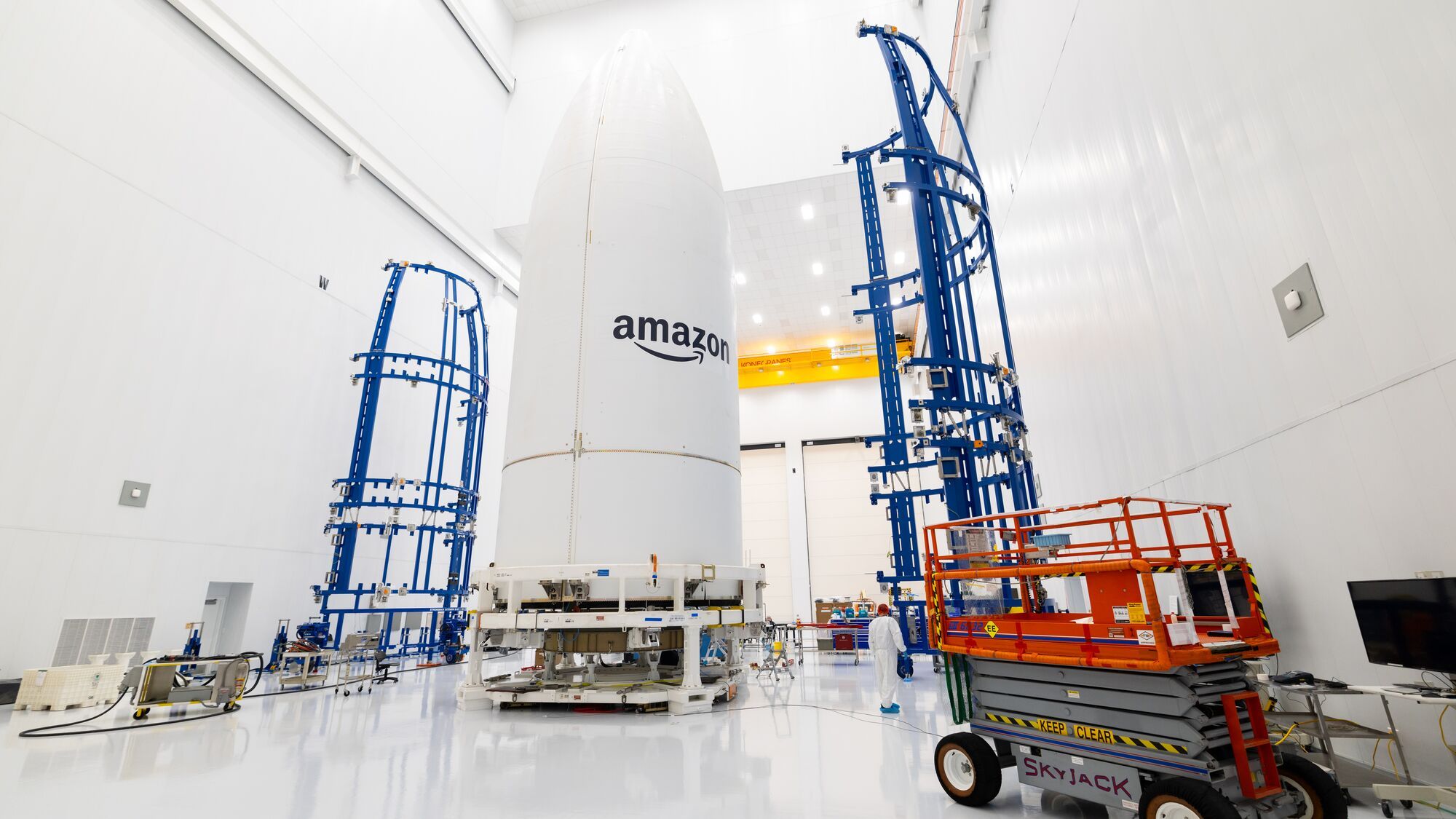
Amazon's Kuiper Project Launches to Compete with Starlink Internet
Amazon is gearing up to launch its Project Kuiper, a space-based internet initiative, directly competing with Elon Musk's Starlink. The first mission, KA-01 (Kuiper Atlas 1), will see 27 satellites launched into low Earth orbit (LEO) on April 9th, pending favorable conditions.
The launch, utilizing a United Launch Alliance Atlas V rocket from Cape Canaveral, marks a significant step for Amazon. The company aims to begin offering high-speed internet service "later this year."
Project Kuiper's Ambitious Network
Amazon's plan involves a constellation of 3,200 satellites, launched in partnership with ULA, Arianespace, Blue Origin, and SpaceX. Like Starlink, Project Kuiper aims to provide global internet coverage.
Users can expect dishes as small as seven inches, delivering speeds up to 100Mbps, with larger dishes reaching 1Gbps. Amazon anticipates the terminals will cost under $400.
Orbiting at 17,000 mph, 392 miles above Earth, the satellites will complete an orbit every 90 minutes. Amazon has incorporated a dialectic mirror film to reduce light reflection, minimizing visibility for astronomers.
With SpaceX already operating over 7,000 satellites, the combined Project Kuiper and Starlink constellations will result in over 10,000 LEO satellites.
Advanced Technology and Testing
Amazon conducted successful test launches in October 2023, achieving data speeds of up to 100 gigabits per second. A high-speed laser cross-link network was added in December, further enhancing speed. Amazon claims its network can transfer data 30 percent faster than fiber optic cables.
The Atlas V Launch
The upcoming launch will be the heaviest payload yet for the Atlas V, utilizing its most powerful configuration, including five solid rocket boosters and a large payload fairing.
Risks and Future Plans
Despite extensive ground testing, Project Kuiper acknowledges the inherent risks of the mission. "We’ve done extensive testing on the ground to prepare for this first mission, but there are some things you can only learn in flight," said Rajeev Badyal, Project Kuiper VP.
He emphasized the importance of learning and adapting for future launches. "No matter how the mission unfolds, this is just the start of our journey, and we have all the pieces in place to learn and adapt as we prepare to launch again and again over the coming years."
Source: Engadget